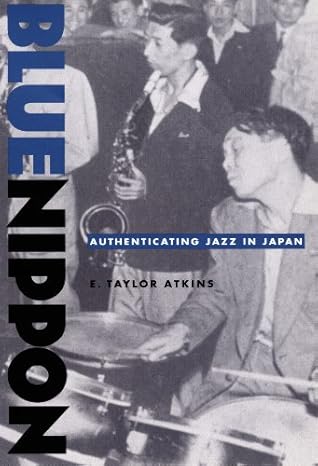Kindle Notes & Highlights
Read between
December 23, 2023 - February 11, 2024
nominikeishon (frank conversation facilitated by massive quantities of alcohol).
But the problems do not end at the front line: “Japanese rhythm sections are often much weaker,” pianist Imada Masaru has said. “Japanese are very tight, but Americans are more relaxed, more jazzy.”
We may rightly locate the “origins” of jazz in Japan in the commercial dance hall, where the jazz community developed its own separate identity.
Jazz critics who had written about and promoted the music for two decades now denounced “enemy music” in their wartime essays. Musicians who had spent their entire careers emulating American music publicly condemned the unfortunate influence it had exerted on indigenous culture.
Put another way, light music was the acceptable term at a time when jazz was taboo: there was little real difference between the “new” edifying version and the “old” decadent one.
Jazz fans also flouted the state’s initial efforts to ban jazz. John Morris, a British teacher of English at Tokyo Imperial University until mid-1942, noted that coffeehouses and cafes featuring recorded jazz showed restraint following the first anti-jazz announcements, but gradually started playing the records again, at ever-increasing volumes, as they “began to realize that the police could not distinguish between Duke Ellington and Mozart.”
Perhaps, as Isoi suggested, there was no escaping jazz. But the music proved seductive enough that millions of Japanese did not object.
The 1960s was a very difficult time for me, but it was also a very important time, because I had so much difficulty supporting my daughter and myself. I really had to take a look at who I was and what I was trying to do. . . . At least if you’re an American it’s justified, let’s say, to be a jazz musician. Jazz is American music. And I thought, here I am, I’m a Japanese and a woman, and the woman part is not that important I think, but here I am Japanese and a jazz player and playing in New York. I never thought I was a bad player, but there are so many great players, too. And I look at it and
...more
This highlight has been truncated due to consecutive passage length restrictions.
Composer Dan Ikuma, in particular, emphasized ma (“thinking in silences”) as one principle on which a new national style would be based.
Many newcomers appeared one after the other and the next epoch seemed to guarantee a ripening of jazz. But the time came when this enthusiastic period came to an end. The opposition movement against the 1970 Japan–U.S. Security Pact was effectively halted. The young people returned to the campus frustrated, and in due course graduated to employment in enterprises that supported the very power structure that they had regarded with enmity. They became “salary men” and lost their vitality to maintain a “jazz energy.”


